I received an email recently from someone who felt she could no longer continue making her art right now because recent current events had left her feeling very low.
While I understood that feeling, and am myself much more inclined and able to make art when I feel good, it saddened me.
What if making art would actually act as a much needed healing balm?
What if the time when we are not making art because we feel sad or stuck is the exact time it would do us most good to make it?
I’m not saying this to call that person out, or to make any kind of judgement – we each know best for ourselves – but it reminded me of a time not too long ago when I was staying out of the studio week after week and I didn’t know why.
I wanted to make art, but I wasn’t, for reasons I hadn’t actually consciously understood, and when I saw them, I saw how much I’d been holding myself back with things that weren’t true.
I went through a period of about ten weeks last winter of not painting at all, apart from one experiment that did not prove at all satisfying.
I’m aware of my painting cycles so for a while it was ok, and besides, all my creative energy at that time was being poured into my Practical Intuition course, which in itself was a creative endeavour on many levels.
But the art, man. I missed the art.
I went up to the studio one Saturday afternoon, determined to do something for myself on the art front before it got dark, which was still around 4pm at that point.
I messed around a bit with the unsatisfying experiment, and it was just annoying me, so I knew that was the wrong direction.
I remember standing there thinking, what is going on here? Why don’t I just get a canvas out and paint something, anything? What’s the big deal?
Not making art was uncomfortable and becoming painful, and yet here I was, feeling as though I just couldn’t. It was turning into a vicious circle.
And then as I stood there, a couple of assumptions rose up to meet me.
1. That doing art should make me feel good or it’s not worth doing.
Um, what? How long had I been carrying THAT one around?!
I noticed a built in assumption that simply wanting to do something would be the guarantee that the doing of it would be fun and interesting.
Even though intellectually I don’t believe it and have plenty of experience of it not being the case.
But why should that be true?
Even the things we love most can sometimes involve challenge and effort. In fact, if there were no challenge and effort, we’d never be motivated to do them.
Or much less anyway. It’d all be too easy.
I’m interested in growth, which is probably partly why this had been nagging at me – how can I develop my art if I’m not making any? – and yes of course, art comes with a huge amount of delight, but to decide that that’s all it should give us is like saying we should never feel sad or angry.
It’s an incomplete picture.
And it means that we cut ourselves off from all that possibility when we hold a secret belief that it might not feel good because we’re not in the mood or feeling inspired, and therefore a part of us says no, for fear of not feeling good.
{And then we don’t feel good anyway!}
2. That I should always feel good about the art I make.
This is really an extension of the first one.
I seemed to have this unquestioned belief – again, in spite of what I logically ‘know’ – that because art and creativity are such a huge part of my life, because I have based my work around that part of myself, and because I really am consciously creative every day in all sorts of ways, that therefore I should have nailed it at every level, including knowing how to always be happy with what I make and how I’m making it.
Yeah……no.
The nature of assumptions often means we don’t notice we are making them, but if we don’t pay attention, how can we expect anything to change?
This whole ‘things should feel good to me in order for me to do them’ thing was holding me back.
It was stopping me from making art, even crap art, which can often lead to satisfying art and unexpected discoveries.
It was stopping me enjoying getting lost in the process for its own sake. It was stopping me even trying a bit of painting.
I do know from experience that for me forcing it doesn’t work; I know that in this particular state I’m unlikely to make one of my better paintings {although let’s not make any assumptions about that!}.
But these previously invisible assumptions had not been serving me, and once I’d seen them, I could change my behaviours. I could stop giving up my power to a perceived ‘problem’.
By way of holding myself accountable, I posted on Facebook that I was going to do something about this.
I thought about the path of least resistance, by which I mean the thing I could do that doesn’t feel too hard, doesn’t require a lot of time and effort, but can still be satisfying just from handling the materials and playing with a subject I know I enjoy.
And I made this:
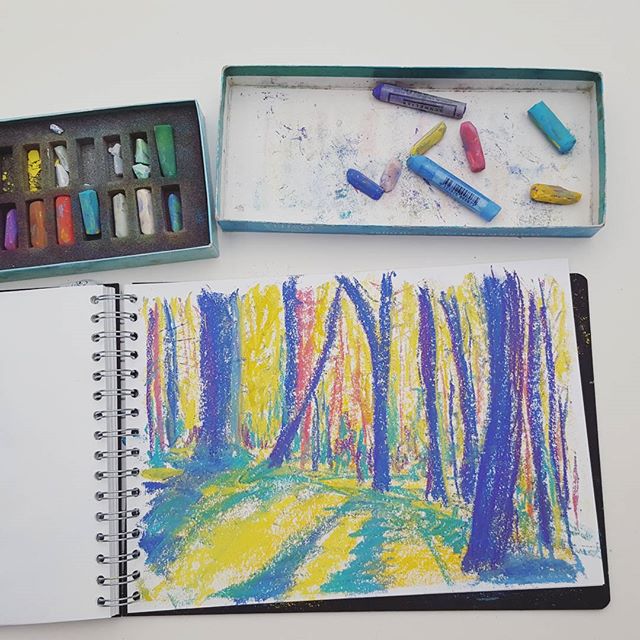
It’s not a masterpiece, and yes I can do better. That’s not the point.
The point is I broke the hold my secret assumptions were having over me about what was possible {or even likely} by taking action; by doing something I knew was easy and low risk.
We can all make excuses till the cows come home, but those excuses are only based on assumptions we’ve made about what’s possible.
And I think the cows might like to see some art, when they do get back. 😊 🐄 🐄 🐄
Below are a couple of posts I discovered in my archives that might help if you’re also hanging around at Procrastination Station of late, for whatever reason.
Bear in mind that when it’s winter in our part of the world, it’s absolutely ok and good and right if we are hibernating and our creative selves are lying fallow.
{And often that’s true at other times of year too.}
This is really for those of us who acknowledge that and also are feeling relentlessly nagged by our creative selves to release the pressure just a little.
21 things to love about making art
‘I want to make art . . . but I’m not’ :: 7 tips for procrastinators
Do you think you might have some unexamined assumptions about your art process that are holding you back? I’d love to know!

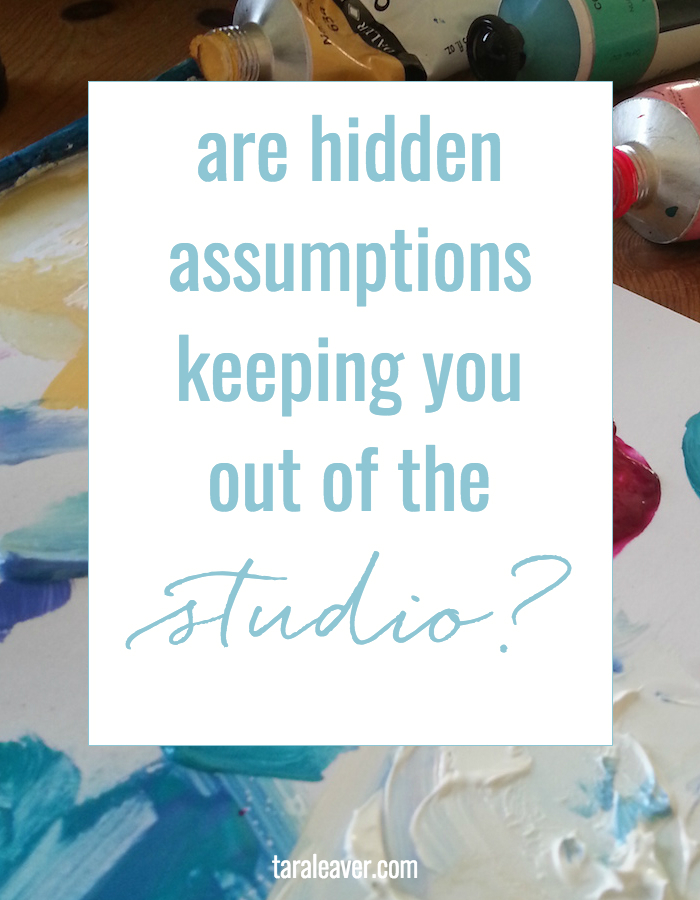
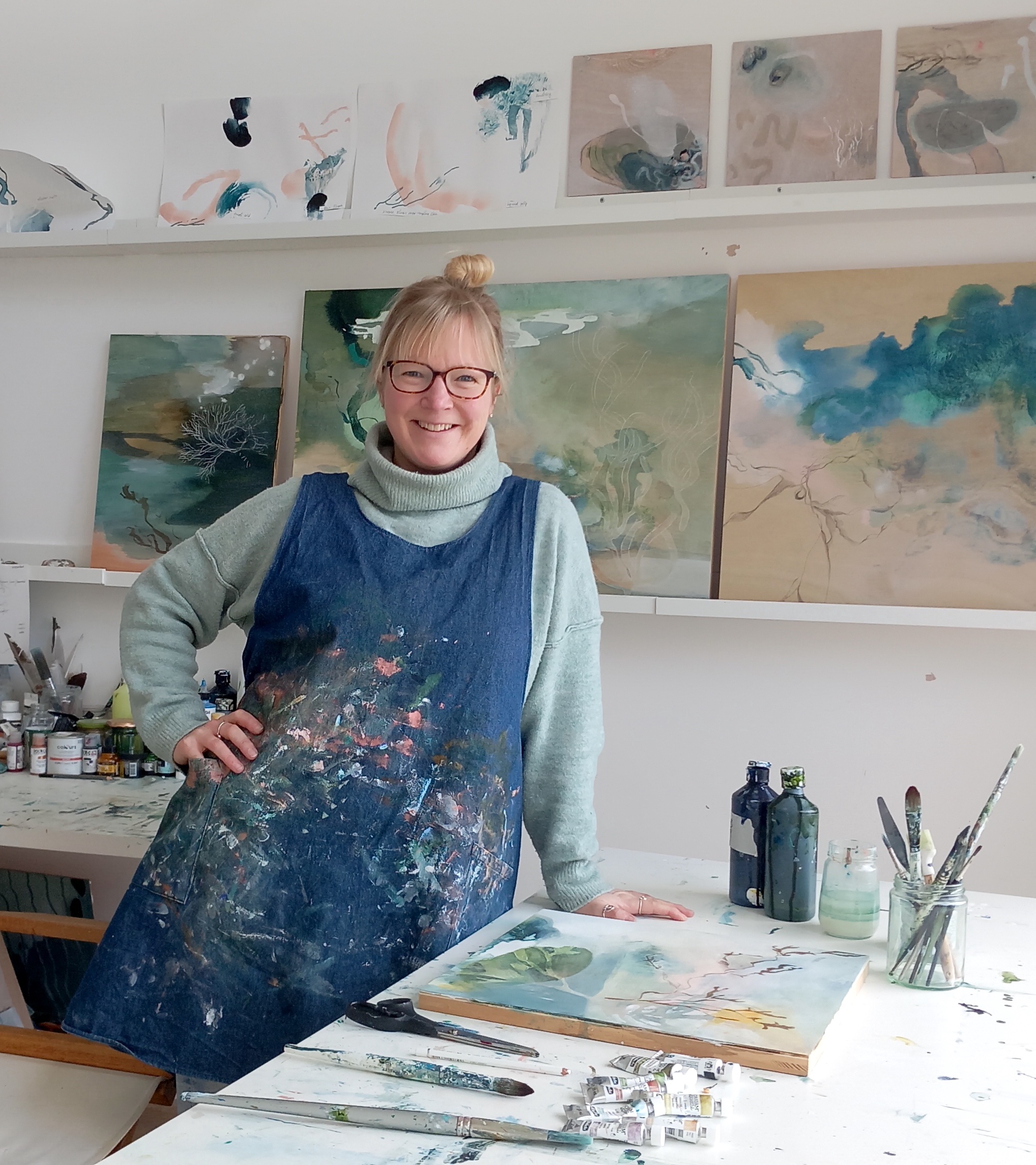
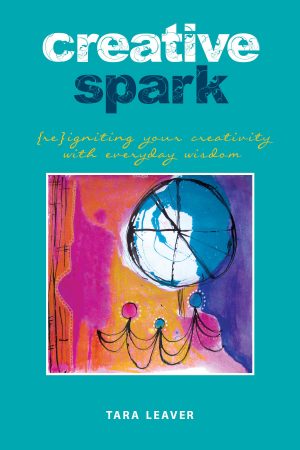
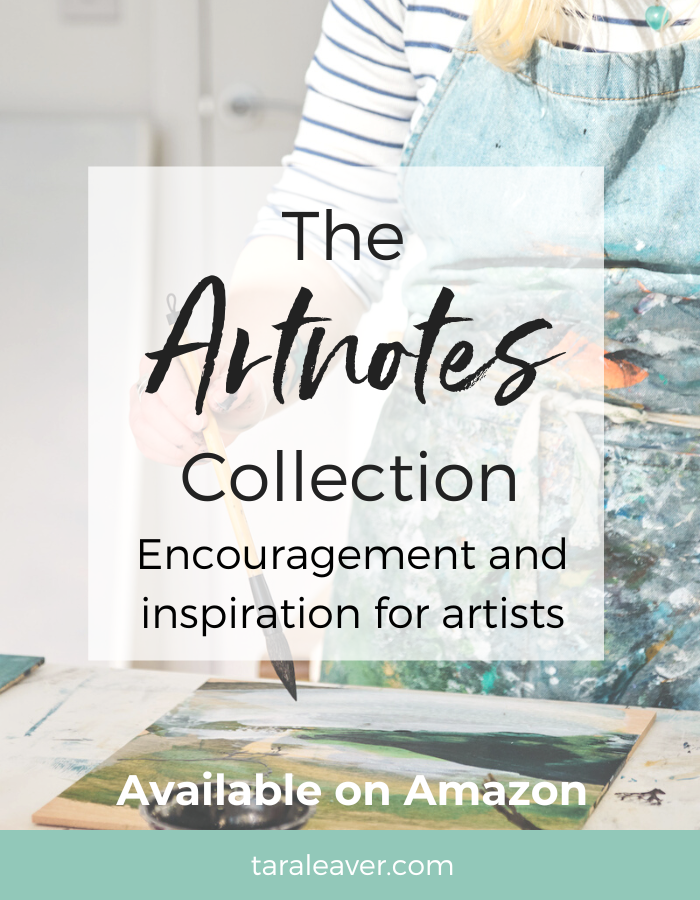
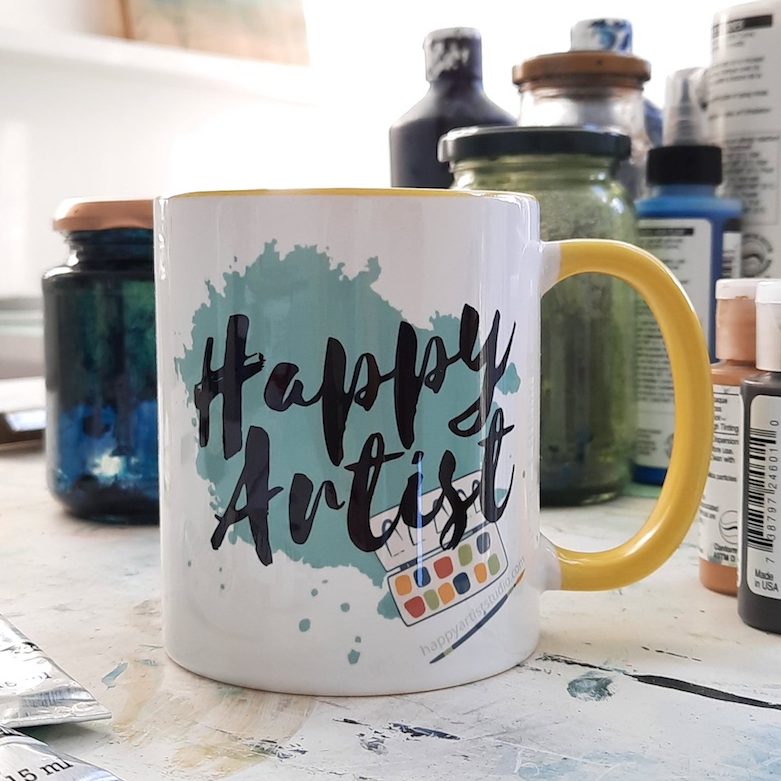
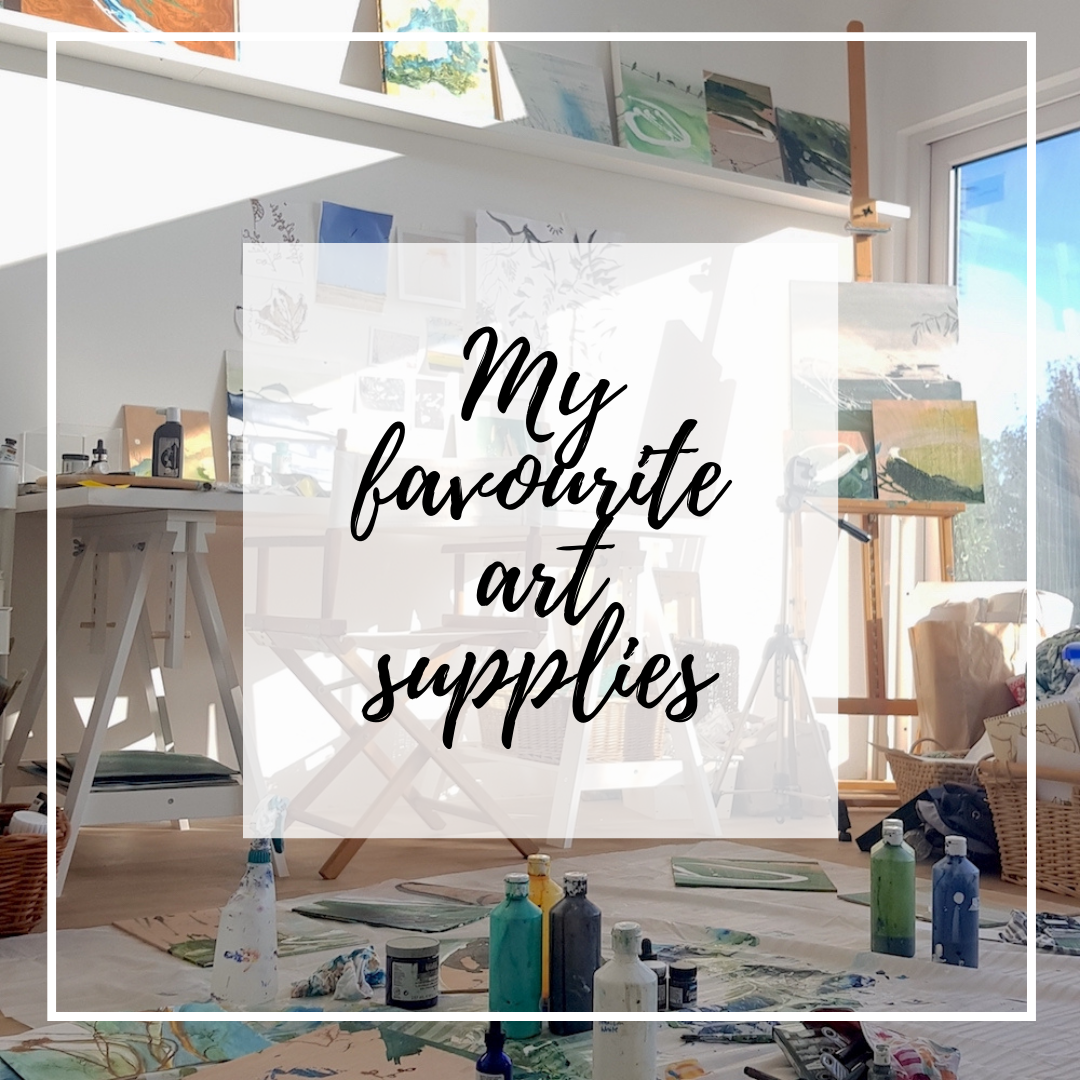
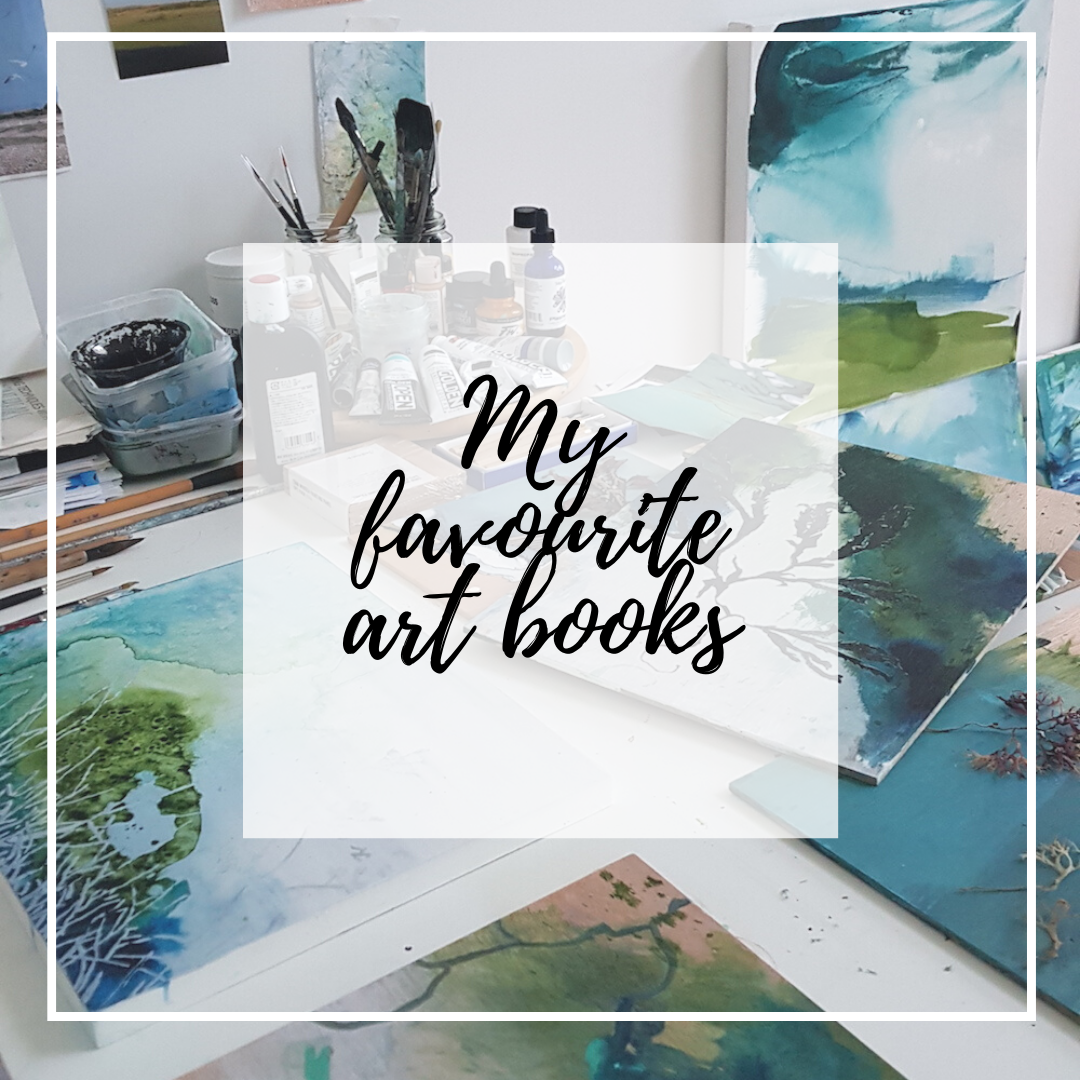
Oh Tara that was so spot on!
I have been making the same assumptions, and I realised it while I was reading your post.
In my mind I know (just like you did) that making art doens’t always need be a fun activity. Sometimes it’s boring, I feel uninspired, or know what I “want” to do, it just doesn’t “come out” the right way. But I have been having this expectation anyway. And it’s an irrational one. nathing can be all fun, everytime.
Thanks for taking this truth and throwing it in my face. Sometimes I need a wake up call 🙂
So cool that you recognised them in yourself Gina! {Not that I’d wish them on anyone, lol.} I think they’re probably very common really. That made me laugh about ‘throwing it in your face’ – not really my intention but glad if it was helpful! 🙂
Yeah, with some people (like me) you just can’t be subtle ????????
Hi Tara,
Thank you for sharing your discovery so that I could discover those hidden assumptions that I tend to hold on to as well! I’ve been making many excuses the last few days that have kept me from drawing and collaging while I’m on holiday. Not being in the right mood was definitely one of them. Your art and your blog have been a huge comfort and inspiration to me for a few months now. I am so grateful to you for making and extending this oasis of creative nutrients to us all!
Hi Astrid – so glad to hear the blog is proving is proving helpful to you! Not being in the right mood is one of my favourites. 😉 I used it yesterday actually!
Hi Tara, your post spoke up my recent feeling, which I couldn’t come up with any words to explain it to myself or the others. I am making art everyday now, sometimes it would be just a little shapes and colors. I am sensing the uncomfortable feeling when I do “too little” to my own standard, and finished the day questioning myself: If it’s uncomfortable and you are sensing it, Why not do more? After reading your post, I ask myself this way: What if I really don’t feel good to do more or even don’t feel good to do anything?
We face the struggle of making art all the time, you gave this thought process a voice and now I hear them, too. Thank you for sharing this, it has shifted my mindset again. 🙂
Hi Jing! It’s so great to be able to notice these subtle thoughts and the feelings that come with them isn’t it! So happy to hear the post was helpful to you. 🙂
Oh, I love everything you write! getting your newsletter this morning and following the threads is such a pleasure.
And a massive challenge….
okay, I painted the bedroom, and the seascape mural, BUT I am avoiding the painting space in general, where I do the ‘normal’ size stuff. And I feel so sad inside when I don’t create.
This post makes it okay to do it even if it feels less than great, and the result might be less than we hoped for.
thank you
Ah Cassandra that’s lovely to hear – thank you! Don’t discount having just painted a whole mural! That’s a big project! Maybe a little pause and regroup is required before starting a completely new one. I find that’s often true for me. Maybe it’s about painting larger, rather than going back to ‘normal’ size? Sometimes resistance is just because there’s more to the story that we haven’t seen yet.
One of my assumptions has been that if I put in the time, I will be satisfied with the results. But then I think of the second half of a popular quote by Martha Graham: “No artist is pleased. [There is] no satisfaction whatever at any time. There is only a queer divine dissatisfaction, a blessed unrest that keeps us marching and makes us more alive than the others.” It helps me remember that satisfaction isn’t really the goal. The goal is to “keep the channel open”, to keep making.
Here’s the first part of the quote, which I’m sure you’ve heard: “There is a vitality, a life force, an energy, a quickening that is translated through you into action, and because there is only one of you in all of time, this expression is unique. And if you block it, it will never exist through any other medium and it will be lost. The world will not have it. It is not your business to determine how good it is nor how valuable nor how it compares with other expressions. It is your business to keep it yours clearly and directly, to keep the channel open. You do not even have to believe in yourself or your work. You have to keep yourself open and aware to the urges that motivate you. Keep the channel open.”
Oh that’s a good one Stephanie! It’s one of those paradoxes of art/creativity that you can work for ages on something and not be happy with it, or create something in ten minutes you absolutely love! And you can’t control it! I kind of love/don’t love that about it, depending on the day!
I have to say I don’t agree with Martha Graham though; I think you can have your cake and eat it. 🙂 I find my work deeply satisfying, AND I am always moving on to the next thing.
One assumption for me is that since I’ve told myself I won’t paint any more of a certain subject and then I do and I even like it- that’s not o.k. It could be keeping me from the direction think I want to go. For example a subject verses non-objective. I do many gifts that are florals, expressionistically that I feel I need go to abstract only. However, sometimes it’s relaxing to do what’s easy at the time.
Do you know what I mean?
The florals are never the same. I can’t do that.
So it would be better to applaud myself for creating something.
I found your article helpful !
Sally
Oh that’s an interesting one Sally! I recognise a little of that in myself now you say it. It feels like going backwards somehow! Sometimes I miss painting figures as I used to, but it doesn’t feel right to be doing them right now. And I don’t think there’s anything wrong with doing what feels easy in the moment! Art is just as much for our own play and pleasure as it is to ‘create something’.
Thank you for your insight! I have been struggling with this for some time. Your post has given me “glasses” so I can see things more clearly
Love that analogy Julie! Glad it was helpful. 🙂